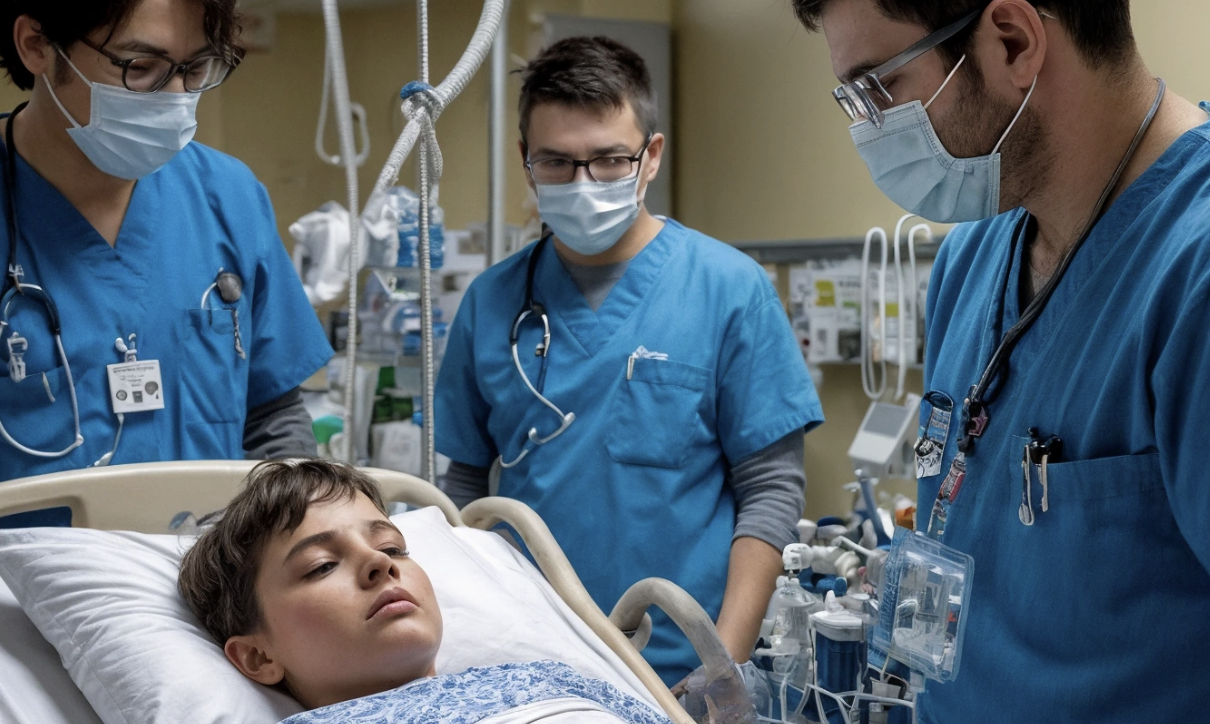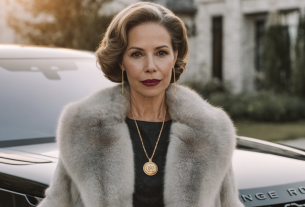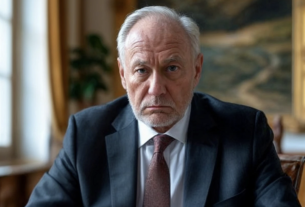A seven-year-old orphan boy lay in the hospital room, as if already cut off from life.
He was a lonely child — without parents, without love, without a chance, or so it seemed to everyone around. Only the doctors, the ticking clock, cold walls, and the hum of medical machines. They were about to disconnect him from life support: the readings showed no consciousness, the heart beating only thanks to the machine. But just at the moment when the doctor reached for the button, the boy whispered a few words.
What were those words? A prayer? The name of a mother he had never known? Or a last “forgive me,” addressed to a world he never got to love?
Time seemed to freeze. The doctors stood still. And the small heart, stubbornly resisting in his chest, suddenly became a symbol of something greater — a reminder that miracles do happen. Especially when it comes to children.
This is not just a story. It is a reminder: as long as there is life — there is hope. Even in the quietest hospital room, even in the body of a child where the pulse is barely heard, there burns a light capable of surpassing any diagnosis.
Anna, the head nurse, stood by the door of the room for a long time.
She had worked here for over twenty years but had never felt this way — not even with a dying patient. Not because the child was dying — there were many like that. But because this one was alone. Completely alone. Without a mother’s voice, without a father’s hand, without a toy under the pillow, without the smell of home-cooked food. Just laid down, like a forgotten thing, in the corner of the world.
Anna approached the bed, ran her palm over his forehead, and whispered:
“Ilyusha… if you can hear me — don’t give up. You must have a tomorrow. At least a drop of hope…”
Meanwhile, Vasilyev, the head of the ICU, signed the papers.
“Clinical brain death,” — black on white. Signature, stamp, approval. All documents in order. Disconnection scheduled for 5:00 PM. According to protocol. According to the rules. According to the law.
No one knew that that very morning, a thousand kilometers away, a woman woke up in a small village house. Elizaveta. She woke up sweating, with chest pain, with a rupture inside.
“My grandson… my boy… where are you? Where are you, Ilyusha?”
Seven years ago, her daughter gave birth to a child and abandoned him. She ran away. And Elizaveta lost contact with her offspring. But that night he appeared in her dream — in a white room, alone, with a question:
“Grandma, will you find me?”
She didn’t wait for answers. Put on an old sweater, took a cross, and left. A mother’s heart, especially a grandmother’s, rarely mistakes.
At 4:55 PM the doctor entered the room.
All preparations were done. The nurses had left. The lights dimmed. Only one button remained to be pressed.
And at that moment — faintly, through the silence, as if from another world — the boy whispered:
“Grandma… I’m here… don’t turn me off…”
The doctor stepped back. He couldn’t believe his eyes. The readings were the same. But the child’s lips really moved. And there was a voice. Quiet, but real.
“He’s speaking…” he began, but Anna rushed into the room.
“He’s alive! I heard him! He wants to live!”
From that moment, everything changed.
The disconnection was canceled. Emergency diagnostics. And suddenly — a spark of activity in the brain. The lungs started working independently. The heart was beating not from the machine, but from its own will. And although movements were weak, each one became a victory.
Two days later, Elizaveta came to the hospital.
In her hands — a photo of the boy she had been searching for seven years. She asked with a trembling voice:
“Do you have a boy named Ilya? I’m his grandmother. I just want… to see him.”
They wanted to say “no,” but one nurse suddenly froze:
“He… he called for his grandmother. Before waking up.”
They led her to the room. She entered — and saw not a body, but LIFE. Ilyusha lay with his eyes closed, but his cheeks were already pink. And when he whispered:
“Grandma…”
She dropped to her knees. Cried like for the first time. And all around — doctors, nurses, even those who had been for disconnection — just stood and watched. Without words. Without movement.
Weeks passed. Ilyusha began to stand.
Reaction appeared, speech, first steps. When they first sat him by the window, he took Elizaveta’s hand and said:
“I knew you would come.”
Months of rehabilitation behind.
He returned home. Not to an institution, not to a hospital — to his home. A small village house smelling of pies, where the cat Vaska purred, where his childhood photo hung on the wall. Where he was awaited.
He fell asleep on his grandmother’s lap, listening to a lullaby. And no one spoke of his death anymore.
And only one doctor, the most cynical of all, wrote in his diary:
I didn’t believe in a miracle. Until the boy whispered two words. After that, I fell silent.
Ilyusha was silent for a long time.
Just sat by the window, watching the curtains sway. There was a depth in his eyes that children rarely have. He remembered the hospital smell, the sound of tubes, the taste of loneliness. He knew what it was to be unwanted.
Elizaveta didn’t rush him. Didn’t ask questions. She cooked soup, stroked his head, told him stories. The very ones she had sung to his mother when she was little.
One day he quietly asked:
“Grandma… why didn’t anyone look for me?”
Her hands trembled. She put down the bowl, sat beside him.
“I was looking. But I didn’t know where they took you. Your mom… she left. I’m afraid she never learned to love. And I… I didn’t make it in time.”
He was silent. Then laid his head on her lap and whispered:
“Teach me to love.”
Elizaveta cried. Because not every adult can ask for that. But he could. He knew the price of love. He suffered it with every cell.
Over the years, Ilyusha began to remember.
Fragments. Nightmares. Cold rooms, indifferent looks, punishments for crying. He woke in sweat, calling for grandma. And she was near.
“I’m with you,” she whispered, holding him close. “No one will hurt you anymore.”
He was taken to the local school.
The children were simple, the teacher kind. And for the first time in his life Ilyusha heard:
“What beautiful handwriting, Ilyusha!”
He blushed with embarrassment.
“You can draw a whole comic!” they told him at the art club.
He laughed for the first time.
Grandma bought him pencils. He drew day after day. Every drawing — a house, a stove, a cat, grandma. And inscriptions:
“Here is my home.”
“Here I am loved.”
“Here I am not alone.”
One day a TV crew came to the school.
Ilyusha was chosen among the students — for resilience, for winning the children’s drawing contest. They asked him:
“How did you become so strong?”
The boy thought. Then simply answered:
“I once wanted to die. But my grandma came. And when you are needed by at least one person… that is life.”
That moment went viral. Millions of views. People wrote letters to Elizaveta, sent things, books, even money. But most importantly — one letter came. From his mother.
The woman lived in another city. Afraid. Ashamed. For many years she didn’t dare to come.
On the phone she whispered:
“Is he alive?”
Elizaveta answered firmly:
“He’s alive. And you must see him. But only he will decide — if he forgives you.”
Anna came. She stood on the porch, trembling with fear. And Ilyusha came out and simply asked:
“Are you mom?”
She nodded, unable to say a word.
“Grandma said you were scared. I was scared too. But now I’m not afraid anymore.”
He held out his hand.
“Do you want to start over?”
They hugged. Awkwardly, but honestly. Like people who finally stopped hiding from the past.
Two years passed.
Ilyusha grew up. Learned to wash himself, get ready for school, take care of the cat. He drew every day, and now he studied at the regional art school — where he was immediately accepted as one of their own.
Grandma sat on the bench by the house, watching him step toward life.
Every time he passed by, he quietly said:
“I’m alive. Thanks to you…”
One day the hospital where he had been lying received a letter from Ilyusha himself.
A simple postcard, neat child’s handwriting:
“Dear doctor, you didn’t turn me off. You gave me a chance. I am growing. I am drawing. I breathe on my own. You didn’t believe — but I’m alive. If there is ever a child like me nearby, don’t rush to turn off the machine. Just tell him: ‘You are still needed by someone.’”
The chief doctor read the letter and went outside. For the first time in many years, he cried.
Spring came. In the yard were swings. Ilyusha was pushing his little sister.
Mom had a second child — this time she stayed. And grandma held an old frame with a child’s drawing.
On it — a little house, stove, trees. And the inscription:
“This is my life. I received it. Thank you.”
Three years passed. Ilyusha turned ten.
He knew what love was — not from books, but from grandma’s voice at bedtime, from warm milk with honey, from how she stroked his head every morning. He understood how fragile life was. Spoke almost like an adult, looked with a wisdom rare for children.
But he still didn’t know everything.
One day grandma took out an old box. Inside — letters, photos, envelopes stamped from distant cities. One of them — a young woman with a long braid.
“Is this mom?” Ilyusha asked carefully.
Elizaveta nodded. And sighed.
“She was beautiful. Very kind. But too soft for this world. When she got pregnant with you, the man she loved left her. And she… broke. Decided she couldn’t handle it. Ran away. I looked for you every day. Prayed. Wrote. And then one day I heard your voice in a dream.”
Ilyusha hugged her. Without words. Without tears.
Since then, the mother came more often.
At first, she sat silently in the corner. Then she began to take his hand. A year later she brought a school backpack. Then stayed overnight when Elizaveta got sick.
They learned to be a family. Not perfect, but real. They quarreled. Made up. Cried. Rejoiced.
One day Ilyusha wrote an essay titled: “Who do I love most?”
“I love my grandmother because she didn’t abandon me when she didn’t know where I was. I love my mom — because she came back when she could have stayed away. I love them differently, but with all my heart. Because now I know: no one is perfect. The main thing is not to leave when you are awaited.”
The teacher brought it home and cried reading it aloud.
At a school event, Anna called herself a mother for the first time:
“I am Ilya’s mom. And I am proud of it.”
Elizaveta stood aside, watching them and thinking: it was all not in vain… all of it.
One day an official document arrived — restoration of parental rights.
Anna put it on the table and said:
“I will not take him away. He is here. His world is here. You are his support. And I want to be near. Until he makes his own decision.”
Ilyusha heard. Came up, hugged them both, and said:
“I want to have two homes. Is that okay?”
They stood together, hugging. And cried. Not from pain — from forgiveness.
Ilyusha became a teenager. Continued to draw. Only now — more seriously.
He was noticed at the capital’s art school. He went to study there. Took only a notebook. On the first page — the inscription:
“I haven’t forgotten. I’m just moving forward.”
He called every evening. Came every weekend.
“Did you eat?”
“Yes, grandma.”
“Did you put on your hat?”
“Of course.”
“I love you.”
“And I love you more than anyone in the world.”
At eighteen, he told his story for the first time in front of a large audience.
The college held a night of revelations. Ilyusha was the last speaker. He approached the microphone and said:
“I was an orphan. But that doesn’t mean I was alone. I was on the edge. But someone heard me. Someone didn’t let go. Now I breathe. I draw. I live. And I owe this life to my grandmother, my doctor, my mom… and God.”
The audience gave a standing ovation. Someone after the speech said:
“You changed my heart.”
Several years later, his first exhibition was held.
The exhibition was called:
“As long as you are needed — you live.”
The main exhibit was a drawing — a boy in a hospital room, and someone’s hand reaching out to him. In the corner — the inscription:
“I hear you.”



